Building a better future in Ethiopia
From brick-making to hen-rearing, young people in Ethiopia’s Somali region are determined to work together to leave unemployment and poverty behind.
Youth unemployment is high in Ethiopia, so the government is encouraging young people to form cooperatives so that they can access loans and start their own small businesses. The Empower Youth for Work for program is providing tailored business development support (BDS) to help these young people get their new enterprises off the ground. Here we take a look at three of the youth groups that are starting to see their efforts pay off.
1. "We now have hope for a brighter future”
EYW helped set up BARWAAQO Cooperative in Berak village by providing a loan and business support for its eleven members, eight of whom are young women. Initially, the group had planned to run a taxi service, but soon realized that this wouldn’t be viable. Instead, they decided to focus on agriculture. EYW ran entrepreneurship and business management trainings, and the group used their loan to buy onion seed and then set about planting a two-hectare field.
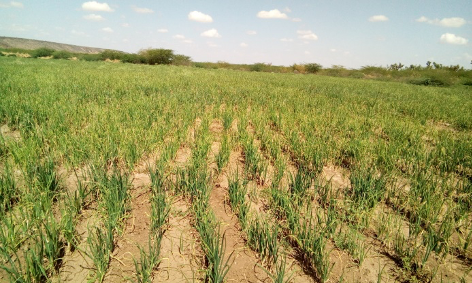
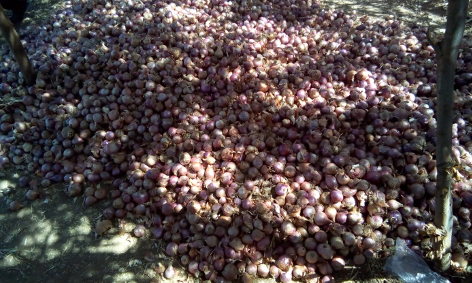
Previously, all the young people were unemployed and had little prospect of earning an income. In early 2020, they were able to harvest their very first crop. Group members say that seeing the results of their efforts has given them hope for a brighter future as they start to develop market links and receive cash for their produce. They are an example to others as they continue to grow their entrepreneurial mindset and look for opportunities.
2. Brick by brick
Looking for opportunities and identifying gaps in the market is exactly what led the HORMUUD Cooperative in Shinile town to set up their business. The group initially considered poultry farming, but a market assessment showed them that there are already several similar businesses in nearby Dire Dawa, meaning they would face tough competition.
Their research also revealed that there is high demand for hollow blocks (a type of brick) in the fast-growing town of Shinile, with a large hospital currently under construction and several new apartments planned. The group therefore decided to produce hollow blocks for sale to the construction industry. EYW provided a loan to get them started, and production began in September 2019.
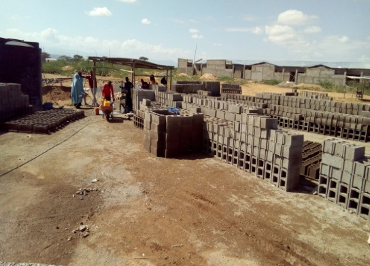
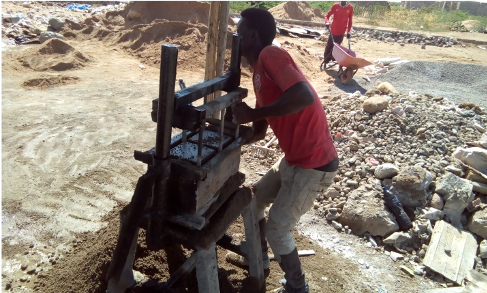
There have been some teething problems – for example, some female members have left the group due to pressure from family – but the remaining members have grown closer and the cooperative is performing well. Within just three months, HORMUUD was producing an average of 500 blocks a day, with daily sales of around 400 blocks at a cost of 13 or 10 birr each, depending on design and quality. It’s a great start, and the young members hope that with further support and training they will go from strength to strength.
3. Growing in confidence
Meanwhile in Wejale city, support from EYW has helped to revive the fortunes of a struggling poultry-rearing business. The AL-MUHIM Cooperative was set up in 2018 with a loan from the Somali Regional State Youth and Sport Bureau. Initially, the group made a good profit as there was little competition in the area. However, their skills and knowledge were limited, and poor management meant that before long their enterprise looked set to collapse.
One of the main challenges they faced was lack of access to chicken feed – they had to buy this from markets in the highlands many miles away, so travel time and transport costs made a serious dent in profits. Many of their hens were in poor condition and this meant the quality of eggs was poor.
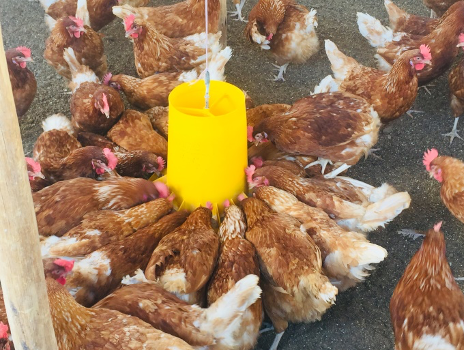
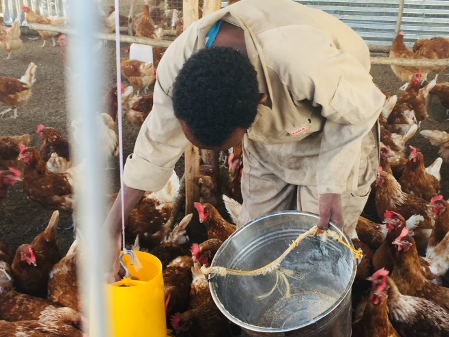
The EYW program and the city administration stepped in and set about revitalizing the business. Oxfam’s partner HAVOYOCO persuaded new youth members to manage the business and identified technical experts from Dire Dawa to provide tailor-made BDS.
The young people learned how to prepare high-quality chicken feed in their own compound, saving them time and money. The experts also taught them how to keep their birds healthy, and soon the hens’ health improved and their body weight increased. As a result, production rose from around 50 eggs to 350 eggs per day, with better egg size and quality. Profits have improved and so has the young people’s confidence. They are determined to keep working hard and learning new skills to make their enterprise a success.
